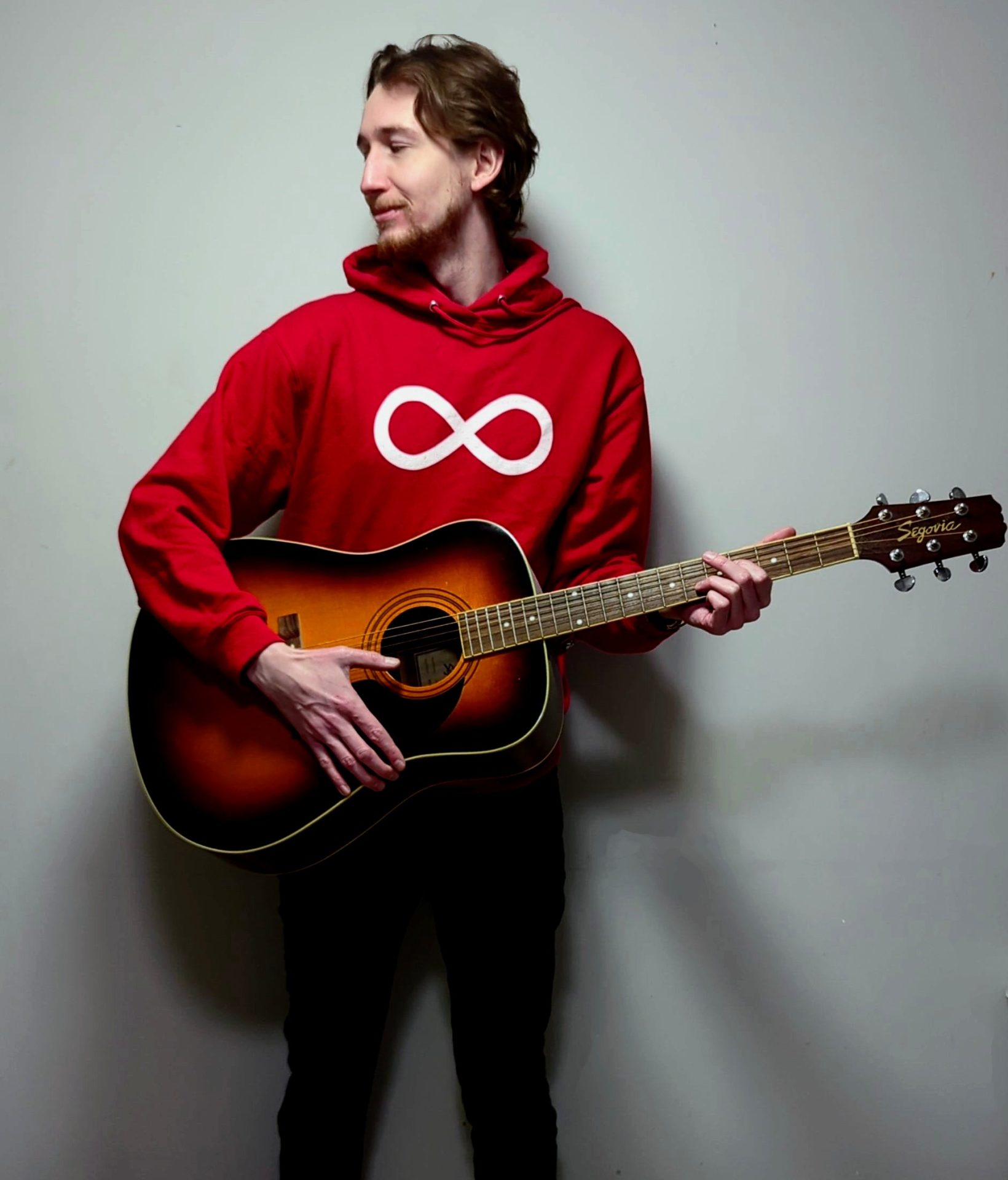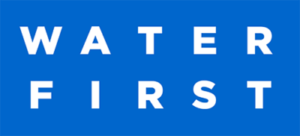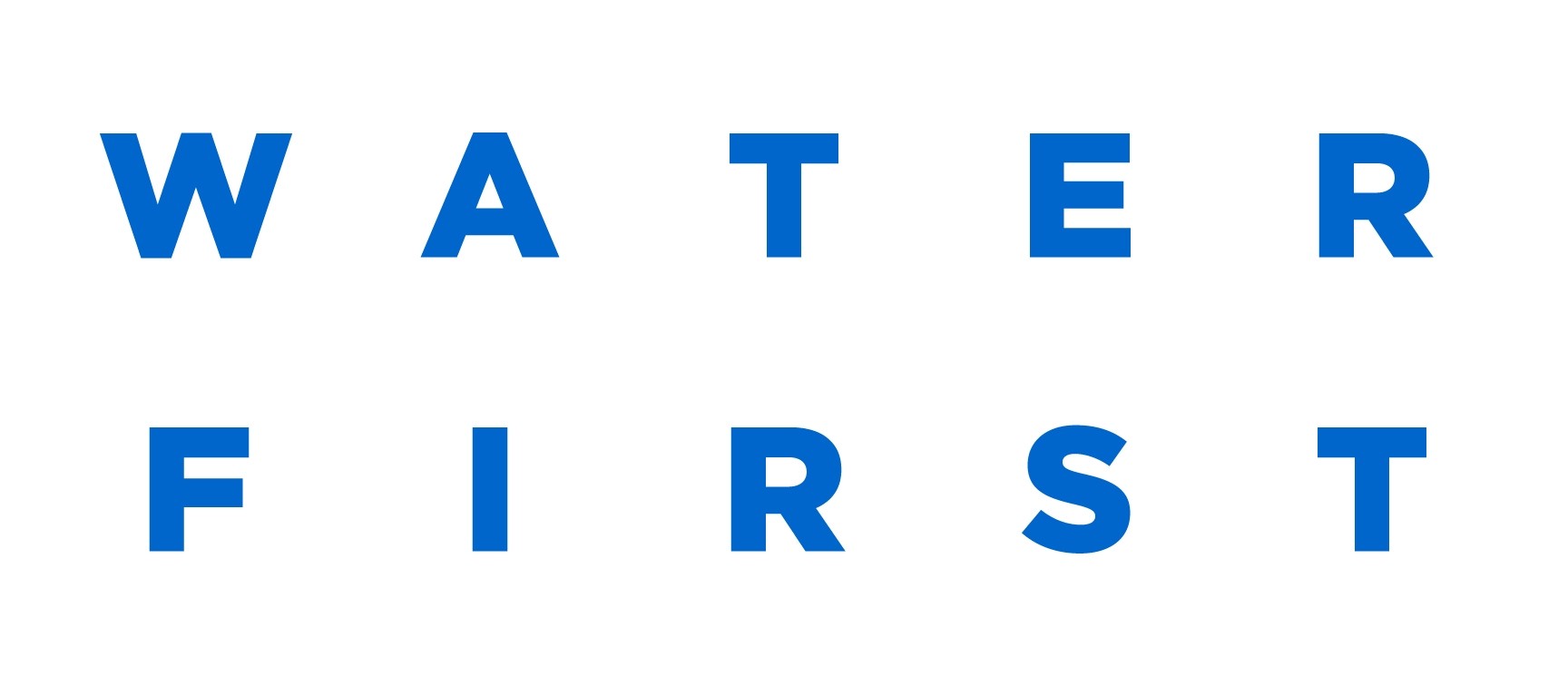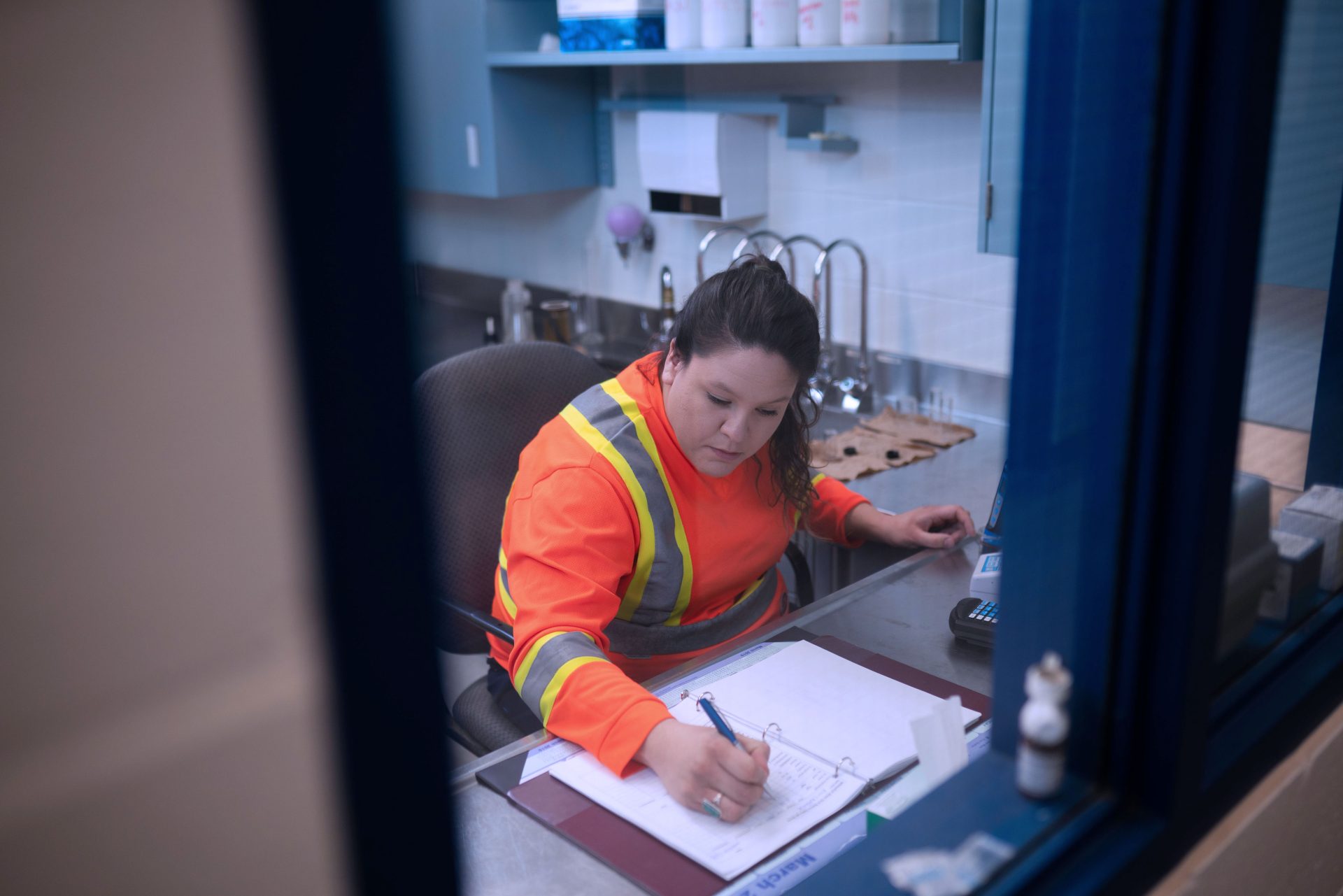The latest news and updates on our programs.
Contents:
Celebrating the next generation of water scientists: World Water Day 2023
World Water Day is recognized every year on March 22. It’s a meaningful day for Water First, because it gives us a chance to raise awareness of the water crisis that too many Indigenous communities in Canada are facing. It’s also an opportunity to celebrate some amazing individuals who are striving to make a change – the Indigenous youth and young adults in the water science field, whether they are training for or have already started their careers.
For World Water Day 2023, we acknowledged the vital role that each person plays in addressing the water crisis. Every day, people contribute their unique skills, knowledge and passion to providing safe, clean water in their communities. Each person’s contribution is important: testing pH levels and monitoring water quality, studying fish populations in a local lake, learning about water science concepts in school, or sharing Traditional Knowledge about land and water management. Education and training, like the Drinking Water Internship Program offered by Water First, help to build the skills and confidence needed to do all these tasks.
Safe water needs skilled people. People like Isaiah, who is a Drinking Water Internship graduate. As part of his job at the local water treatment plant, he uses his skills to monitor water quality and flow levels. Check out this video of Isaiah, where he talks about how important it is to take care of water for future generations.
This year we also recognized the second annual National Indigenous Water Operator Day on March 21. This awareness day was created by Water Movement, a Canadian not-for-profit that aims to bridge the connections between Indigenous water operators.
So many Water First supporters joined us on World Water Day, either by sharing our messages on social media or donating to help us continue our work. Thank you to everyone who helped to make a difference.
Diving Into Water Quality Analysis: A WQA Workshop Recap
A Water Quality Analyst (WQA) plays a critical role in testing water quality in a water system and ensuring the water is safe. For participants in Water First’s Drinking Water Internship Program, working towards WQA certification is a major milestone on the path to a career in water science. The two-week WQA Workshop, hosted and facilitated by members of the Water First team, gives the interns a deep dive into this critical aspect of water safety.
Following an opening ceremony from Elder Don Syrtte from Batchewana (Rankin) First Nation, the interns spent the first week exploring the fundamentals of water quality analysis through theory and hands-on activities. Throughout the week, participants had the chance to review all they had learned and explore areas where they needed more clarity. The second week was a mix of intense studying, fun games, and a final exam that put everyone to the test. The interns had their eyes set on passing the Water Quality Analyst exam, and they pulled out all the stops to make it happen.
The best part of these two intense weeks? 87% of the interns passed the exam! This marks the highest pass rate to date since the start of the WQA workshops, which was a testament to the hard work and dedication of both the facilitators and interns.
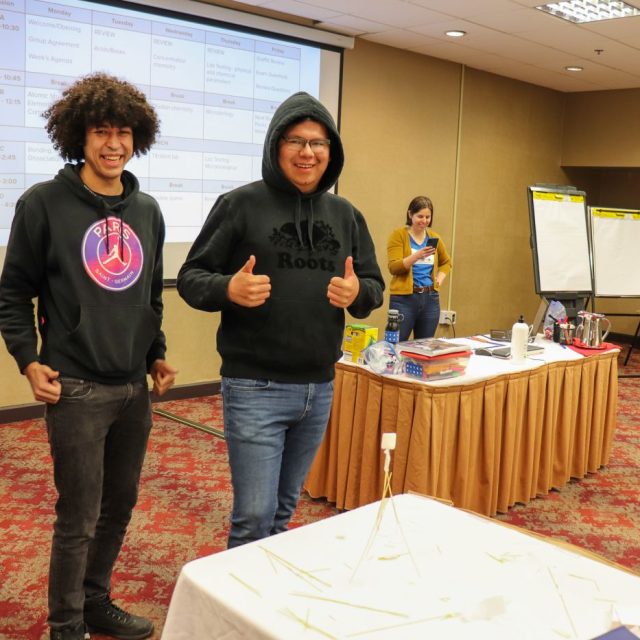
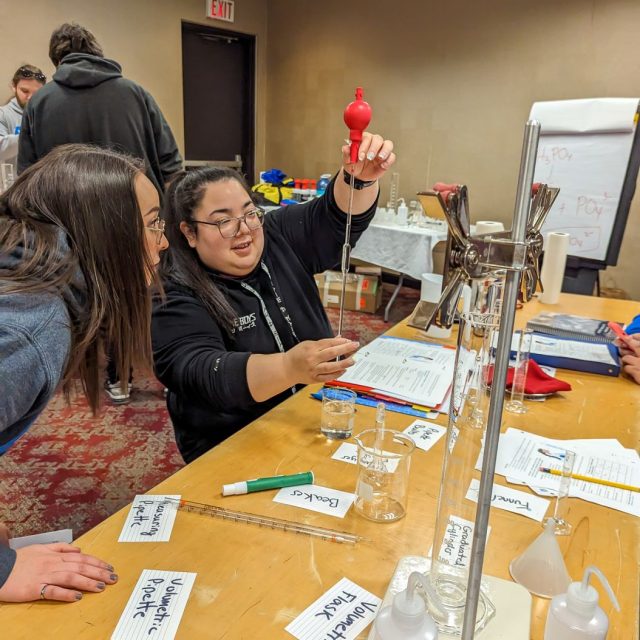
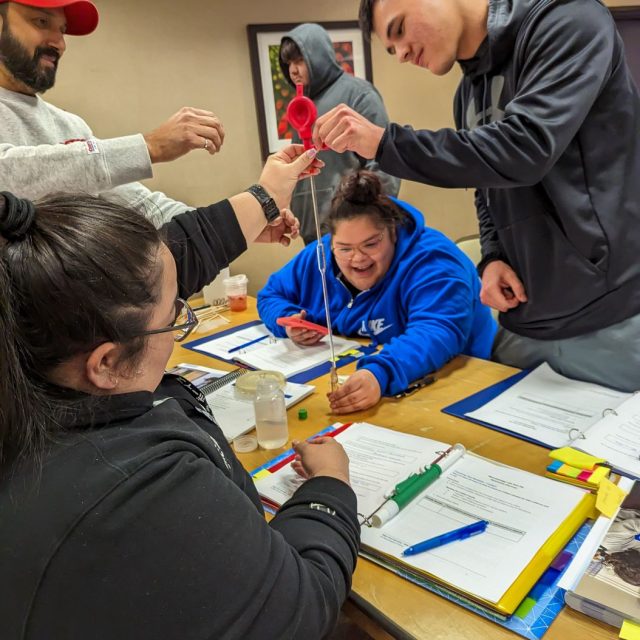
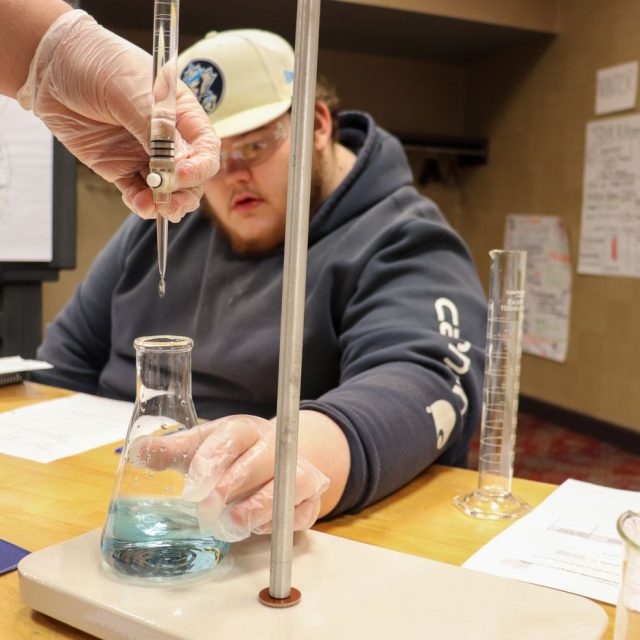
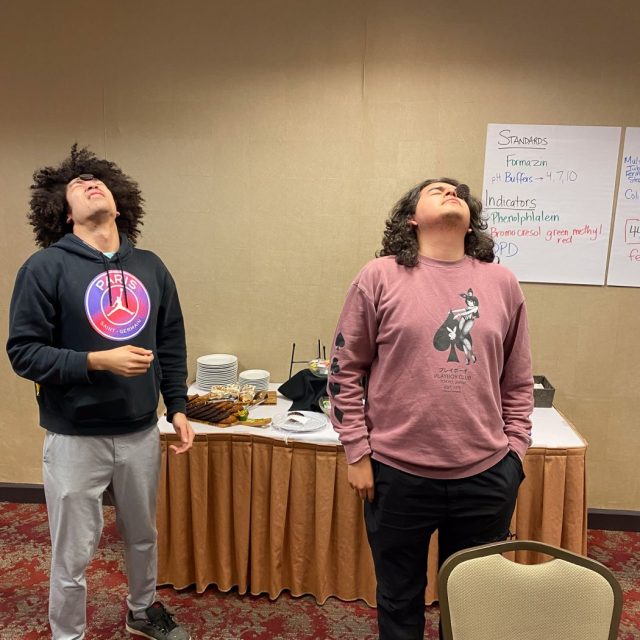
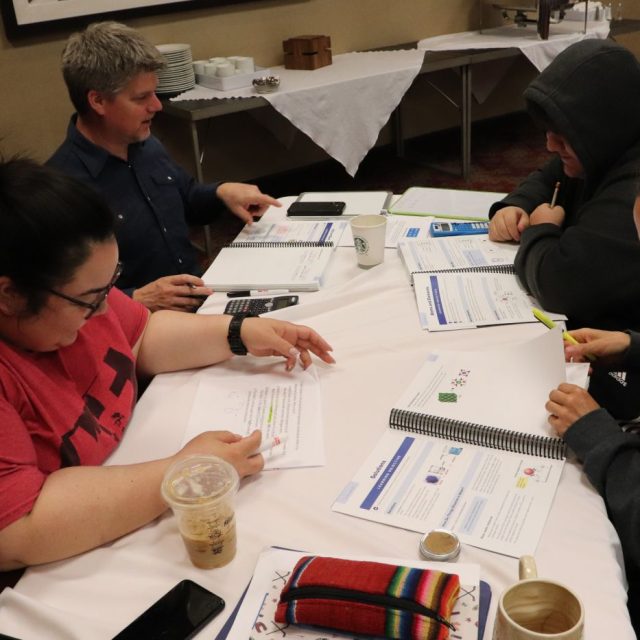
Overall, the WQA Workshop was a resounding success, with the interns gaining valuable knowledge and skills, while having fun and building connections with their peers. It was a critical milestone on their path to a career in water science and will undoubtedly serve them well in their future endeavours.
Read a recap of everything the interns learned during the WQA workshops in this blog post here.
Schools Program gets a warm welcome in the North
Water First’s Schools Program is grateful to be invited to facilitate water science learning with school-aged Indigenous youth in communities across Canada. The team recently visited communities and schools in the north – specifically in Northwest Territories and in the Nunavik region of Quebec. The weather may have been cold, but the welcome we had was anything but! From delivering fish-themed programming in Deline to inspiring water-based science fair projects in Kuujjuaq, the team was thrilled to make genuine connections and life-long memories.
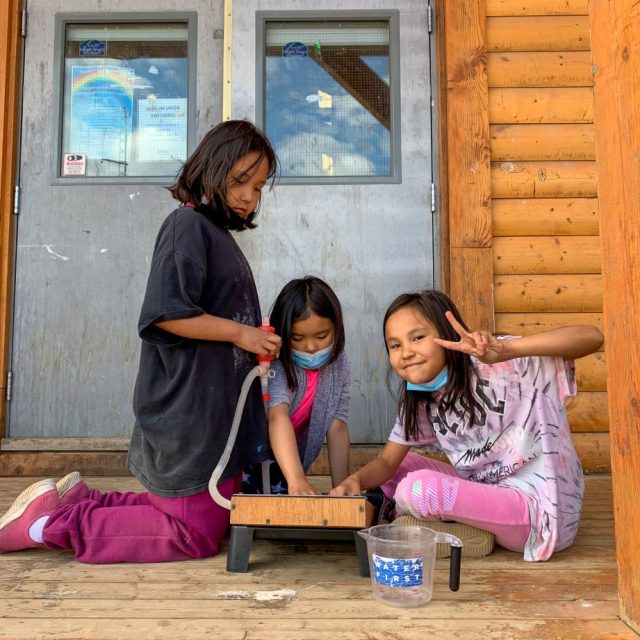
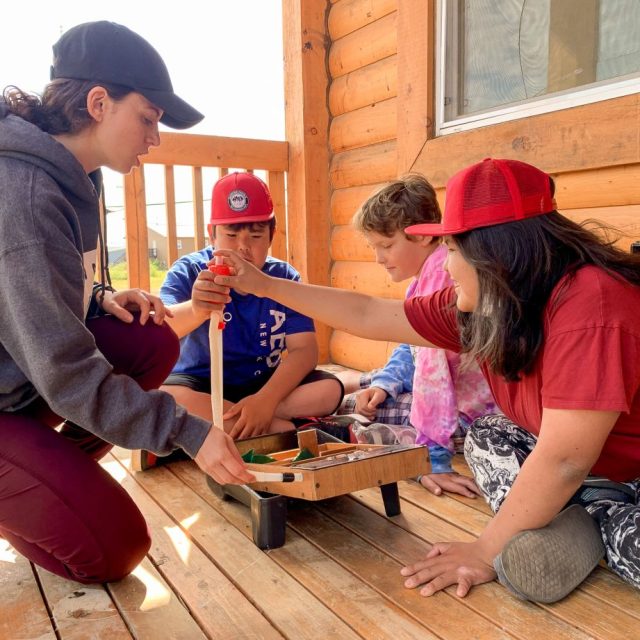
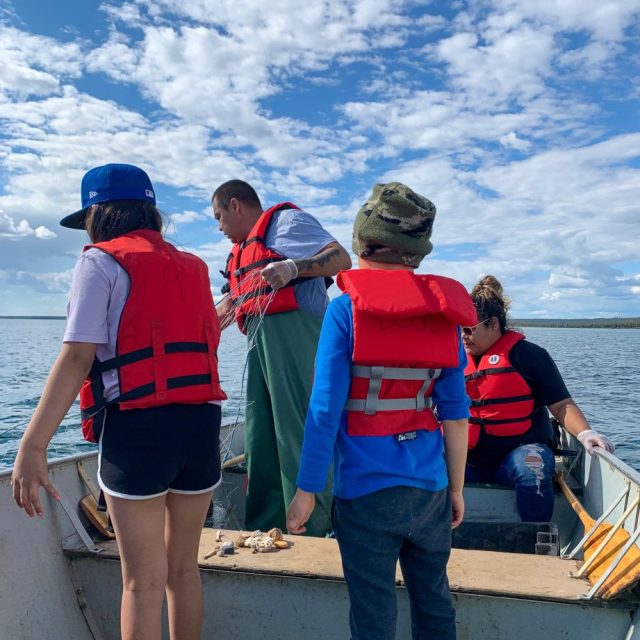
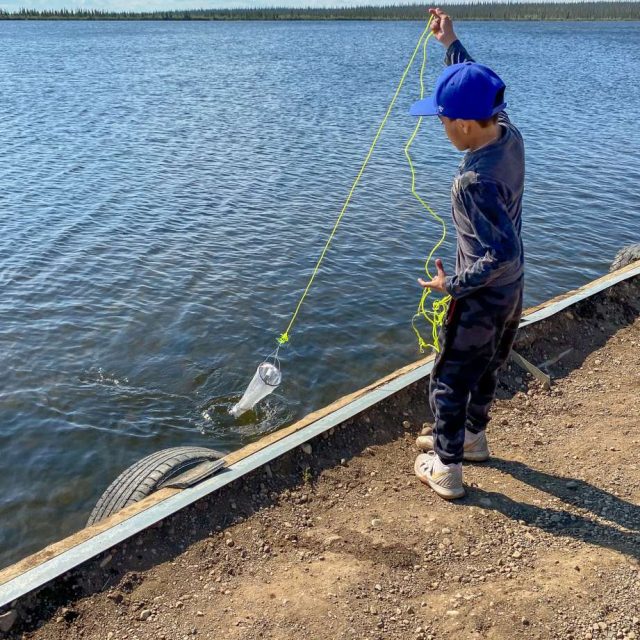
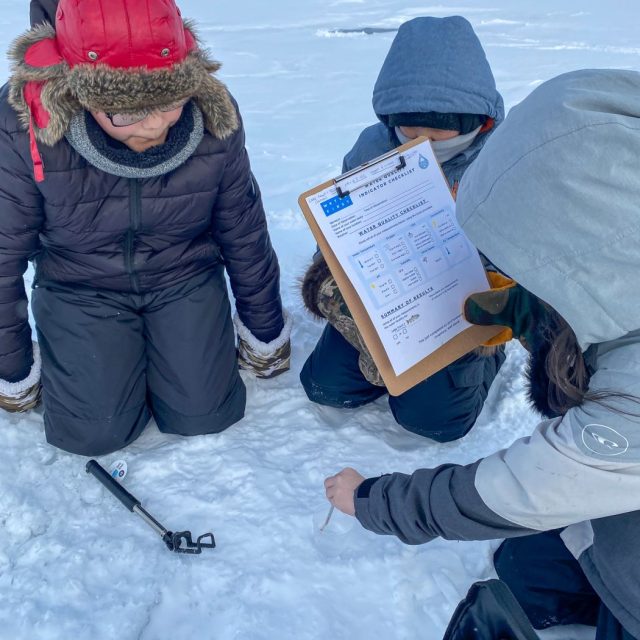
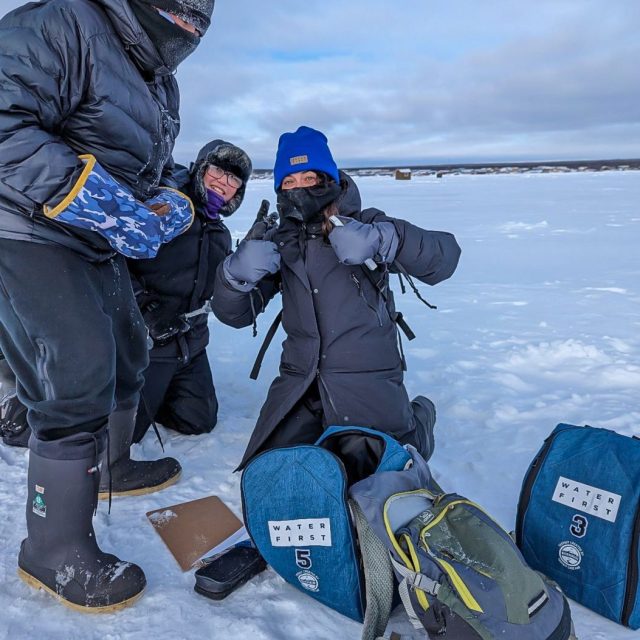
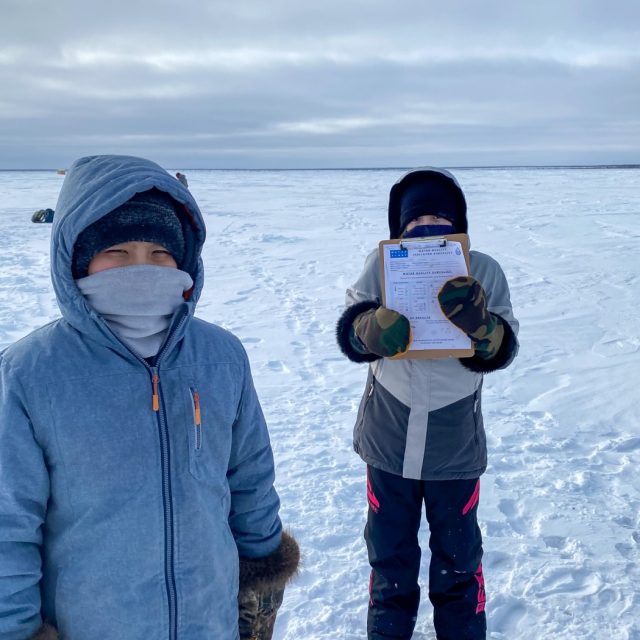
Last August, Water First marked our first-ever trip to the Northwest Territories. Our Schools Program was honoured to join the Délı̨nę Got’ine Government’s 5th Annual Sadǝ́ Camp. Working with students aged 6-13, Water First team members Catherine and Ter delivered a fun week-long water and fish-themed program that focused on learning about Great Bear Lake.
The program focused on using water science tools to learn about water testing and exploring how the watershed connects to the Arctic Ocean. Participants also went out on a boat to learn traditional methods of fish pulling, learned how to clean and smoke fish, and made art using deer hides.
Our second visit to the Northwest Territories was this spring. In late March, Water First’s Schools Program returned to Délı̨nę, this time to work with students at Ɂehtseo Ayha School. During the visit, we worked with each grade from K-12 and focused on understanding the parameters that make their lake, Great Bear Lake (Sahtu), perfect for Lake Trout (Sabah). We also learned a fun fact: Great Bear Lake holds the world record for the largest Lake Trout caught by rod and reel!
After testing different water samples in the classroom using various tools, grades 6-12 brought the water science equipment out on the lake with the help of the school’s on-the-land coordinator, George. George set everyone up with some holes to take water samples – and also to do a bit of ice fishing. Together, the group looked at a range of parameters: pH, temperature, dissolved oxygen, TDS and conductivity.
The community’s language, Dene Kede, was also a main focus throughout our visit, as the school was wrapping up their Language Celebration Month. Catherine says, “When Language Celebration Month was brought to our attention, we had conversations with the language teacher about some initiatives and strategies the community is doing for language and cultural sharing amongst the youth population. They shared that they are making positive strides towards growing their traditional language with youth and piloting a kindergarten immersion program.”
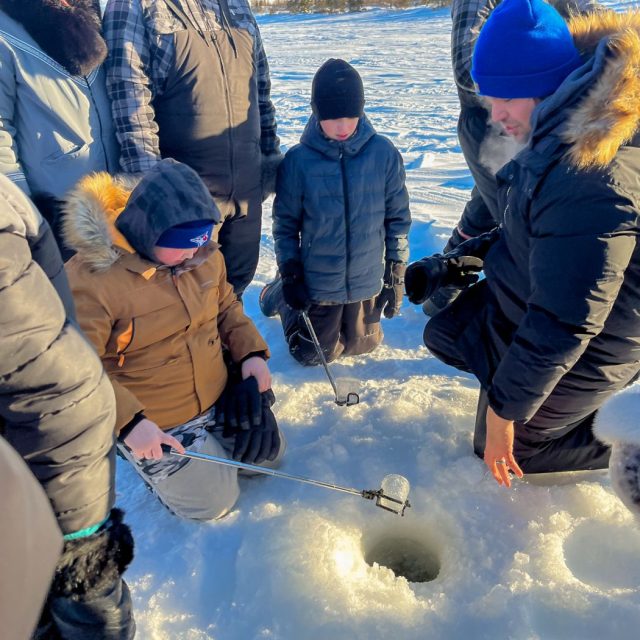
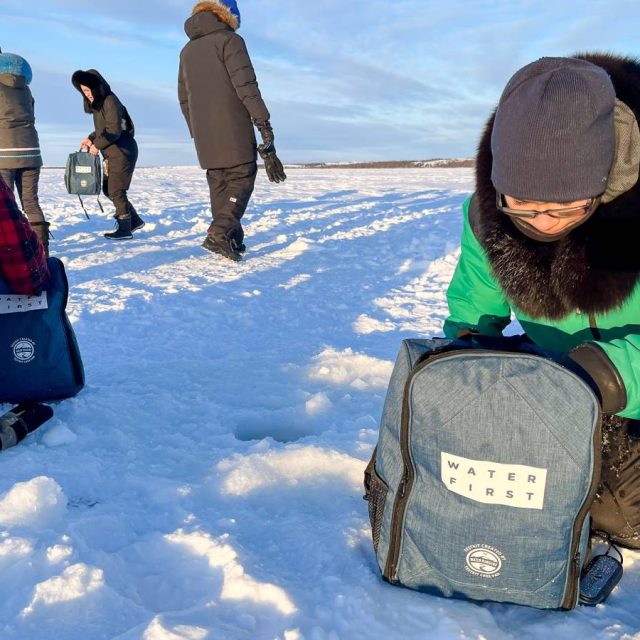

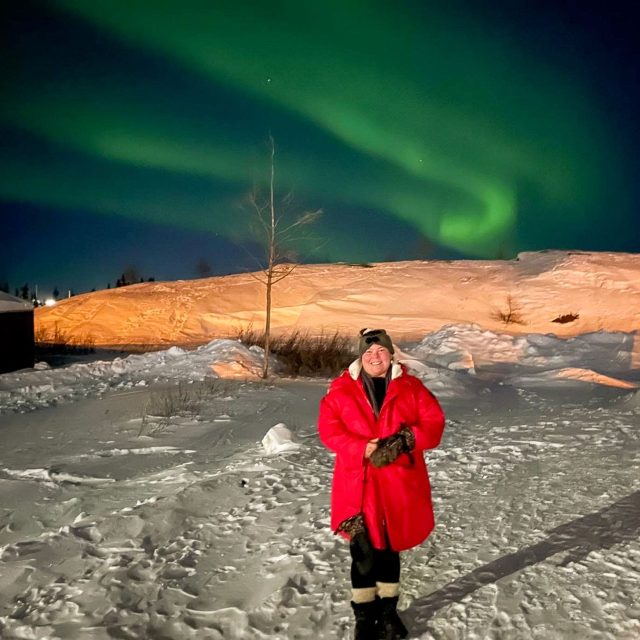
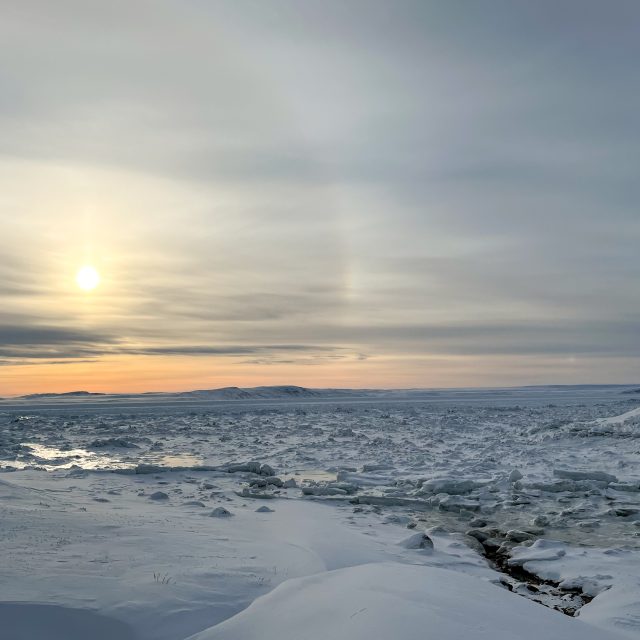
Water First also had the opportunity to venture into the Nunavik region of northern Quebec. In January, Adrianna and Dillon from Water First’s School Program visited the Inuit villages of Kangirsuk and Kuujjuaq on two separate trips.
The temperatures may have been chilly, but we got a warm welcome from each community. In Kangirsuk, the team hosted workshops for students in grades 3-5, which are designed to inspire students to take an interest in water science. They also had the opportunity to use the workshops as a jumping-off point for high school science fair projects focused on water.
In the next visit, to the village of Kuujjuaq, the team spent time out in the community with grade 7 students on a field trip to the local lake and a tour of the water treatment plant. These experiences helped students make connections between the quality of the water in the lake and the water treatment process.
The Nunuavik trips were full of special moments and meaningful connections. Read Adrianna’s blog post to get the full story.
Long-term connections for sustainable outcomes
A fundamental aspect to Water First’s work is striving for lasting results – which means sustainable outcomes to projects, with benefits remaining within Indigenous communities for the long term. That’s why our focus is on education that supports a community’s long-term goals. Safe water needs skilled people, now and into the future.
This approach is clearly evident in our Environmental Water Program. Environmental projects take a long view. When it comes to fish habitat restoration or climate change monitoring, it can take months, years, or even longer to see noticeable positive change.
So when a community reaches out to us for support in implementing a project or training strategy, we know it’s the start of a long-term relationship. And we wouldn’t have it any other way.
Naskapi Nation of Kawawachikamach
The collaboration we’ve had with the Naskapi Nation of Kawawachikamach (NNK) in northern Quebec is a beautiful illustration of this approach. Our work together started in 2018, and led to the completion of three projects in support of lake health in the region. We’re planning ways to celebrate this relationship, so watch for more stories to come.
The partnership with Water First has allowed us to learn about the health of our lakes and fish on our traditional land. This knowledge will allow us to monitor and protect our resources for future generations.
David Swappie
Counselor, Naskapi Nation of Kawawachikamach
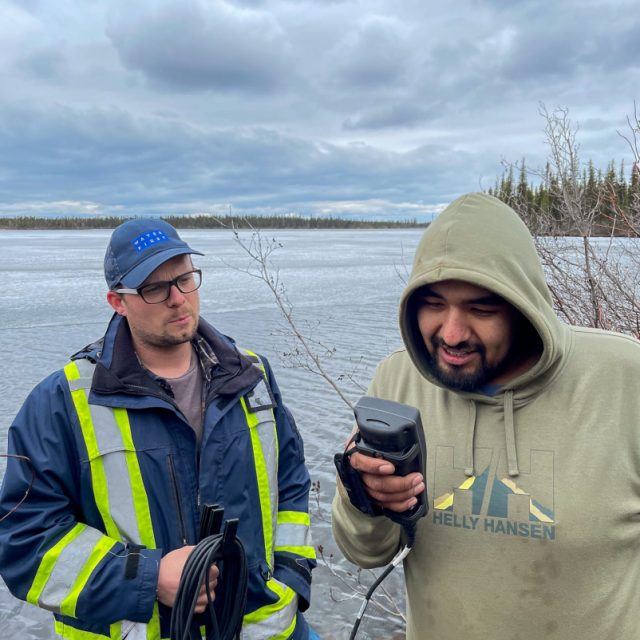
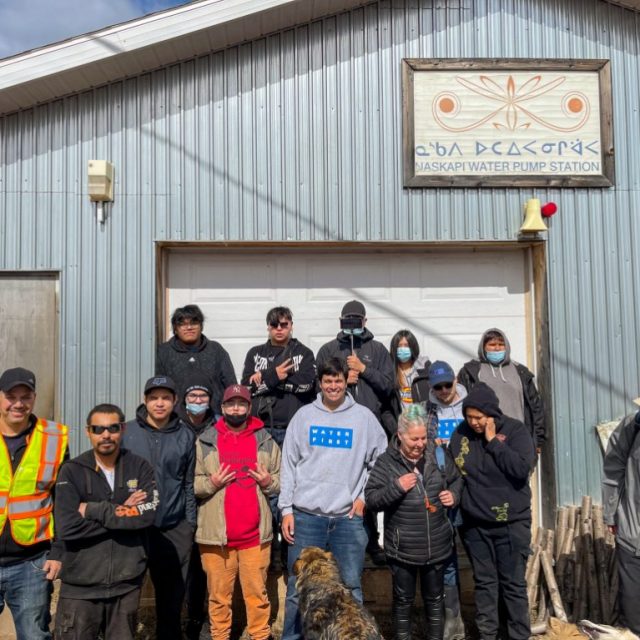
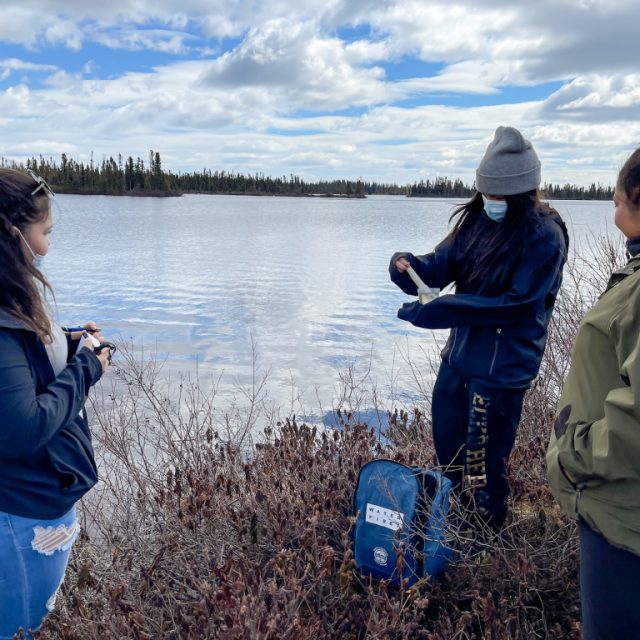
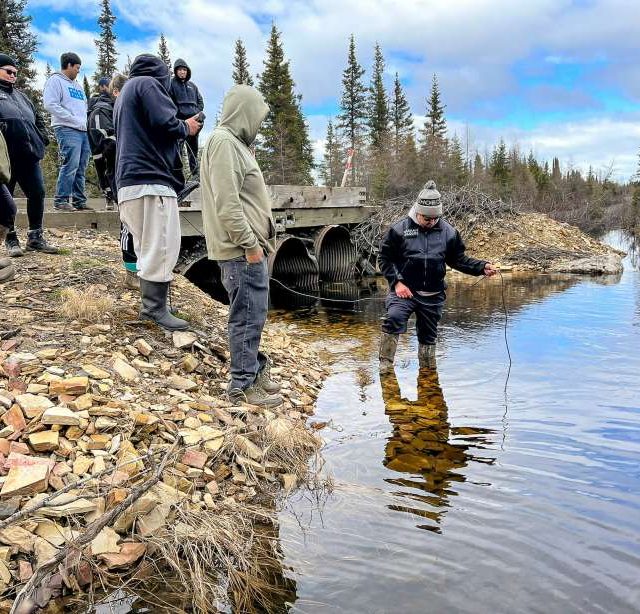
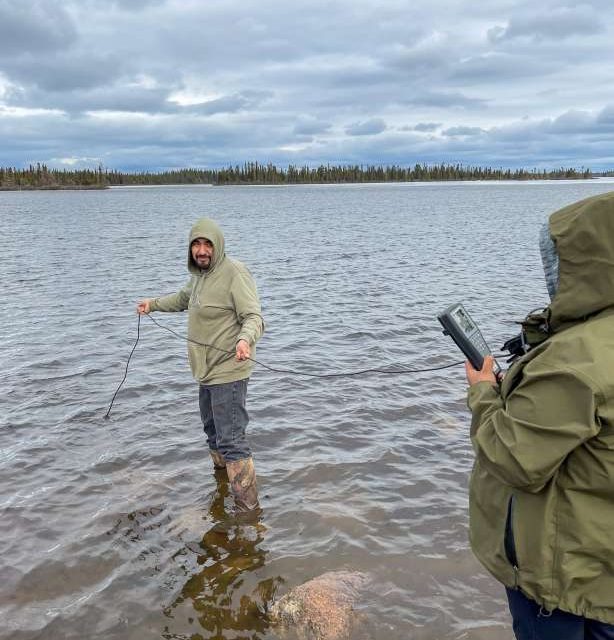
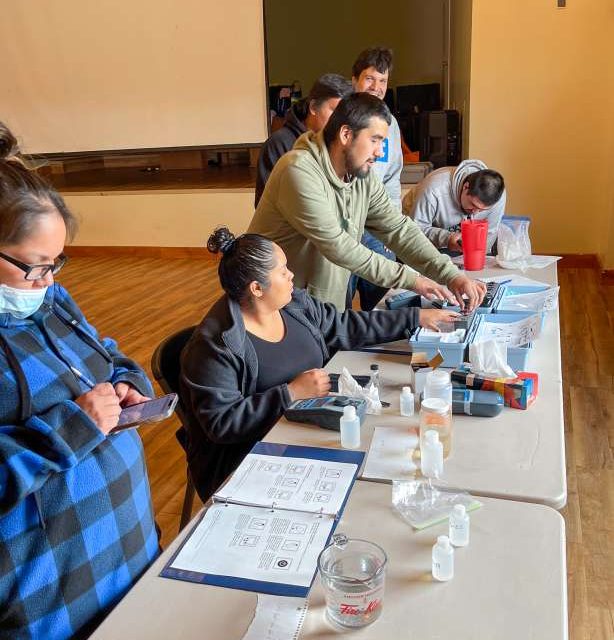
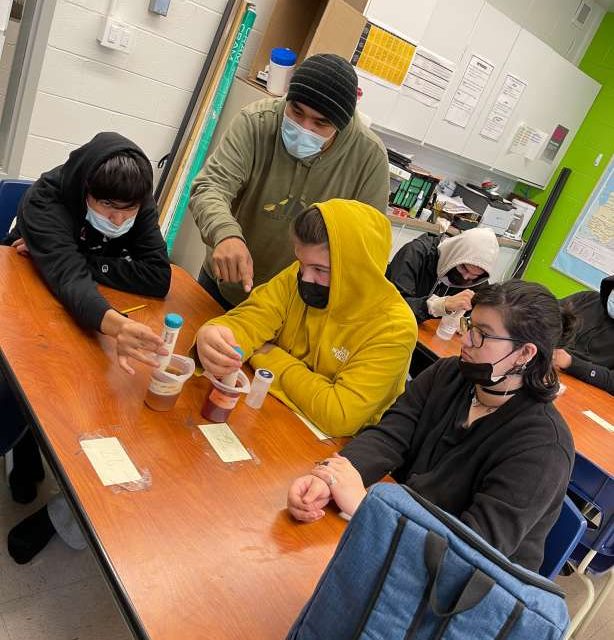
Sheshatshiu Innu Nation
Water First’s work with Sheshatshiu Innu First Nation (SIFN) is another example of a relationship with longevity. One of the benefits of this long-term collaboration is the opportunity for field work at different points in the year. Last summer, Water First staff traveled to Park Lake, Labrador to work with SIFN on projects to support strengthened capacity for fisheries management. And then in February, the team visited Park Lake again for a winter water monitoring workshop. We look forward to more visits in the future!
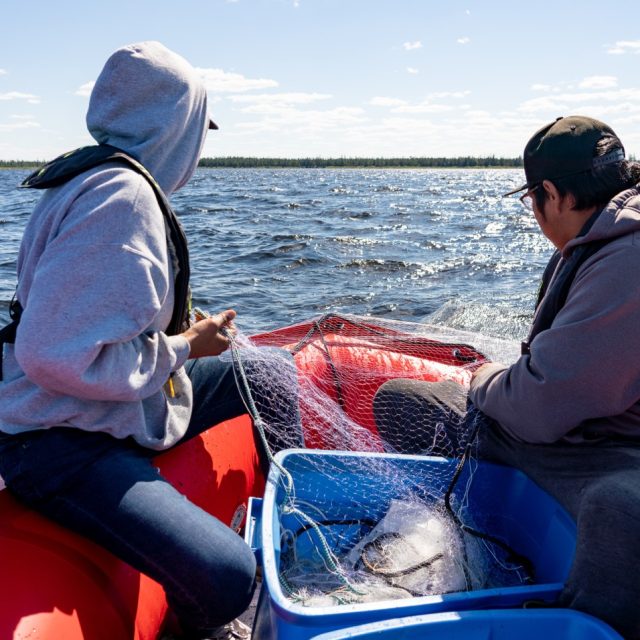
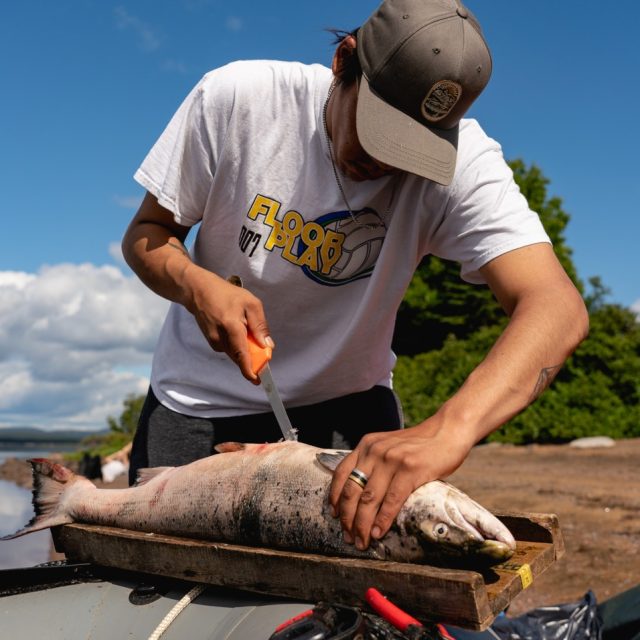
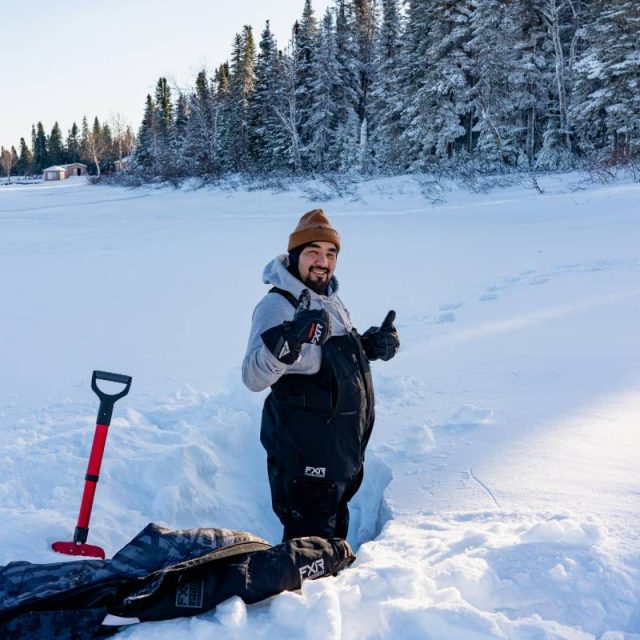
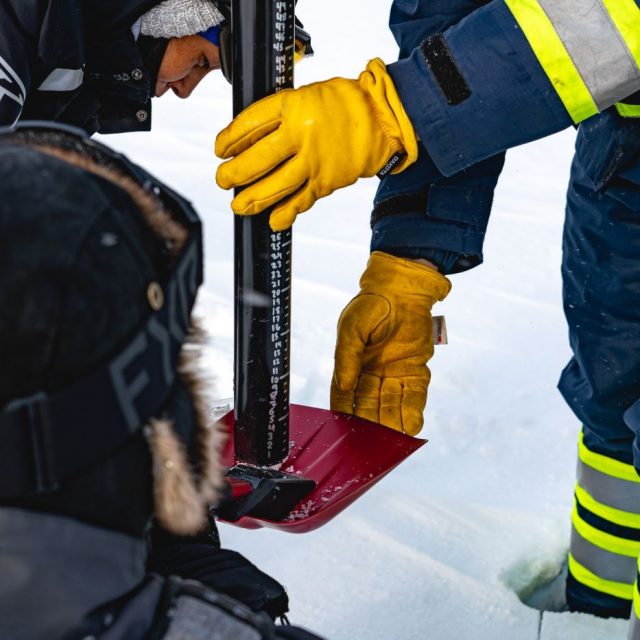
The Sound of Water: Jacob’s Journey to Water First
Jacob Vickery is Water First’s Communications Assistant. Since he joined the team early in 2023, Jacob has contributed his unique creative talents and collaborated with other team members on a number of projects. In this blog post, Jacob reflects on the role that music played in his path to Water First.
Jacob’s film-making skills have also been in the spotlight. In late April, his short film, Infinity, premiered at the Canadian Roots Exchange‘s (CRE) National Gathering in Banff. You can watch the film here.
